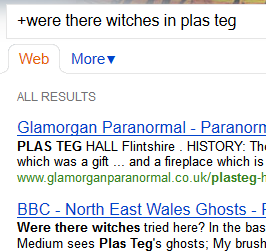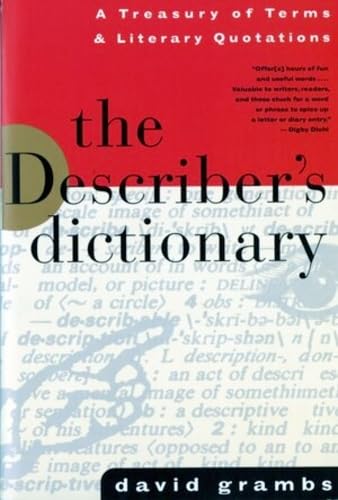 As the major search websites become more vigilant against the over-use of certain words, then those hoping for high ranking result links have learned to protect their content. Anyone invited to create articles for their sites will be warned outright against using unethical SEO practices like this.
As the major search websites become more vigilant against the over-use of certain words, then those hoping for high ranking result links have learned to protect their content. Anyone invited to create articles for their sites will be warned outright against using unethical SEO practices like this.
Of course, it's still the case that careful writers will continue to incorporate those important, highly sought after triggers. They have to. If they want their answers to be matched to the question posed by their reader, then the terms need to correspond. As with everything in life, it's a case of everything in moderation.
Failure to comply will undoubtedly incur consequences. A site owner might disable the article, until it's rewritten more naturally. The more ferocious may not believe in second chances. The writer is unceremoniously kicked out and all of their work is deleted. Game over and no more revenue from that source.
No-one can say that they weren't warned. It is in the terms and conditions of every major magazine site on the internet.
Wizzley Quality Requirements: 'Articles are marked for revision by the authors when one or more of the following aspects are present: ... Keyword stuffing (excessive use of the same keyword).'
Suite101 Submission Guidelines: 'Keyword stuffing. At Suite101, we steer well clear of dubious search engine optimization, broadly speaking, anything designed to help your search performance but which weakens your article. As such, we do not accept unnatural use of keywords - including overuse and awkward use.'
Hubpages Learning Center: 'Over-use of keyword-heavy words or phrases may also result in moderation, as it falls under the category of being deceptive to searchers.'
Squidoo Terms of Service: 'If you make a lens filled with repetitive language designed to bait the search engines, we'll probably delete it. We are looking for useful, updated material that is written by a person, for a person.'
Those are only four examples. I can practically guarantee that every other writing platform will have something similar in their user agreements too.
The reason is very simple and holds as true for small, one-person blogs as it does multi-user mega-sites. Keyword stuffing is the quickest route to having your whole site deranked by search engines. This could well be the modern equivalent of the likes of Google acting like the publishing houses which rejected Emily Brontë and J.K. Rowling. But without any way for the readers to find your brilliant writing, how would anyone ever know?


 It is quite remarkable to realize that Emily Brontë was turned down by no less than thirty-six publishers, before she found one willing to take a chance on Wuthering Heights.
It is quite remarkable to realize that Emily Brontë was turned down by no less than thirty-six publishers, before she found one willing to take a chance on Wuthering Heights.












 As the major search websites become more vigilant against the over-use of certain words, then those hoping for high ranking result links have learned to protect their content. Anyone invited to create articles for their sites will be warned outright against using unethical SEO practices like this.
As the major search websites become more vigilant against the over-use of certain words, then those hoping for high ranking result links have learned to protect their content. Anyone invited to create articles for their sites will be warned outright against using unethical SEO practices like this.








 St Tydecho's Churches in West Waleson 09/03/2014
St Tydecho's Churches in West Waleson 09/03/2014
 Goodies for an Outlander Premiere Partyon 03/06/2015
Goodies for an Outlander Premiere Partyon 03/06/2015
 Holocaust Memorial Day Interview with Rainer Höss, Grandson of Rudolf Architect of Auschwitzon 01/24/2015
Holocaust Memorial Day Interview with Rainer Höss, Grandson of Rudolf Architect of Auschwitzon 01/24/2015
 Romantic Valentine Gifts for an Outlander Fanon 01/16/2015
Romantic Valentine Gifts for an Outlander Fanon 01/16/2015



Comments
You're very welcome. Thank you for reading it. :D
What a great article. Thank you for sharing your knowledge ;-)
Nema na cemu!
How are you checking your keyword density?
I must admit I am doing keyword stuffing sometimes, unintentionally. I have read somewhere on the net that acceptable keyword density was 3 to 8 %. Few articles I had fixed had nice rank boost. So it is obviously very important to keep an eye on key density in your articles. Not only for search engines, but mostly to keep you visitor coming back to you. Thank you for advices!
Yes, the days of writing nonsense crap, just to figure on search engines, is thankfully over. The internet was always meant for use by human beings, not algorithms.
Thank you for commenting and it's good to hear that another writer out there has professional integrity and pride!
Very helpful, and I must say reassuring for anyone who actually cares about their online writing to know that search engines no longer fall for these kinds of tricks and instead look for rock solid content.
Thank you, 2uesday. I hope it shed some light onto things for you. :D
I'm glad that it was useful for you. <3 And you're welcome!
Thank you, Jo! Really nice article -- I mean wizzle. It helps put keywords in perspective.
It does indeed, FuturisticWriter. In fact, it should apply to anybody writing on the internet today.